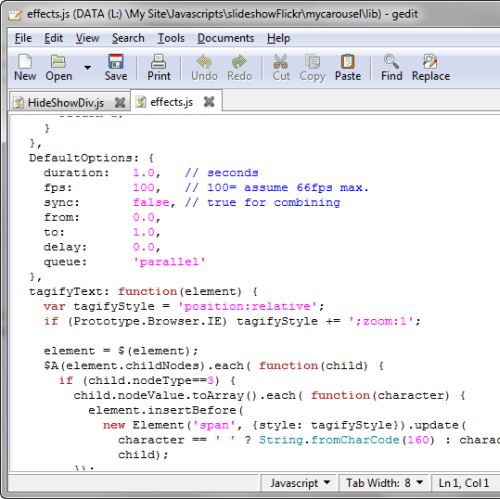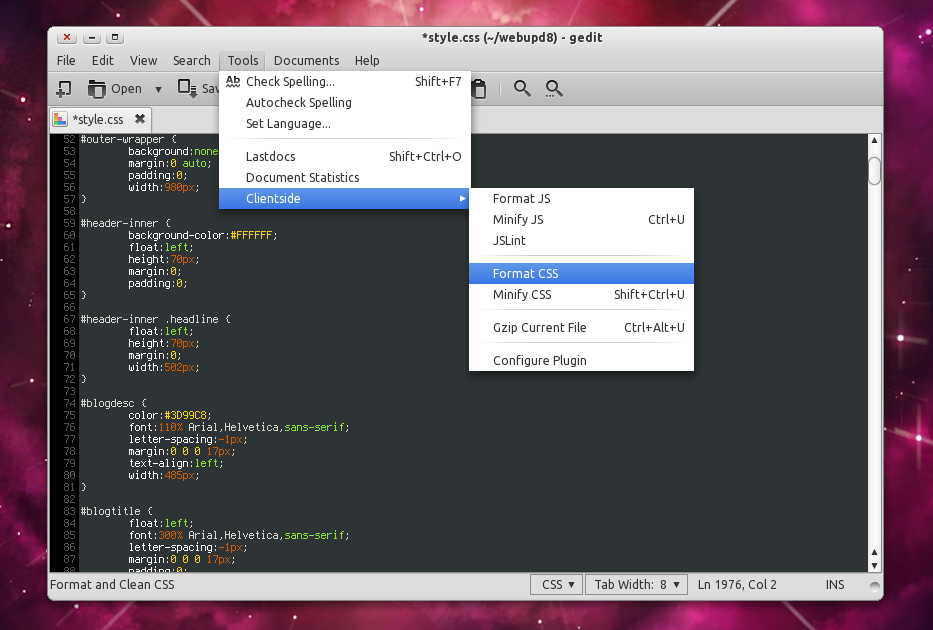

Our diagnosis is that individual developers do not pay for tools. Our 500k developers would not pay to use it. Then, our product failed to generate revenue. We executed very well here, and grew our user base to 500,000 monthly-active developers, with almost zero marketing spend. It took many iterations and heavy engineering lifts to get there. We did not reach product-market fit until 2019, five years after starting the company. We sequenced building our business in the following order: First we built our team, then the product, then distribution, and then monetization.īecause our product was very difficult to build, we began by building a world-class engineering team. We failed to build a business because our product did not monetize, and it took too long to figure that out. Nonetheless, we could have built a successful business without 10×’ing developer productivity using AI, and we did not do that.
#GEDIT PYTHON 2.7 PLUGIN CODE#
It may cost over $100 million to build a production-quality tool capable of synthesizing code reliably, and nobody has tried that quite yet. We made some progress towards better models for code, but the problem is very engineering intensive. The largest issue is that state-of-the-art models don’t understand the structure of code, such as non-local context. As of late 2022, Copilot shows a lot of promise but still has a long way to go. You can see this in Github Copilot, which is built by Github in collaboration with Open AI. We built the most-advanced AI for helping developers at the time, but it fell short of the 10× improvement required to break through because the state of the art for ML on code is not good enough. While we built next-generation experiences for developers, our business failed in two important ways.įirst, we failed to deliver our vision of AI-assisted programming because we were 10+ years too early to market, i.e.

Thank you to everyone who used our product, and thank you to our team members and investors who made this journey possible. We have stopped working on Kite, and are no longer supporting the Kite software. To make this the default for all future users in your system, you can set system-wide dconf settings by storing them in a text file under /etc/dconf/db/local.d and running dconf update.Īs opposed to the EDITed part, you have control over this.From 2014 to 2021, Kite was a startup using AI to help developers write code. $ dconf load /org/gnome/gedit/preferences/editor/ < gedit-settings.ini $ gsettings set .editor tabs-size 4įor all gedit settings you could use $ dconf dump /org/gnome/gedit/preferences/editor/ > gedit-settings.ini

So for only the tabs-to-spaces you would use $ gsettings set .editor insert-spaces true The way to read from / write to this is via gsettings get / gsettings set, or dconf dump / dconf load. This stores the settings in a binary database. Gedit preferences, like other GNOME settings, are generally stored via the GSettings API, which is an implementation of the DConf specification. Note: Given that the default behavior is often times a matter of taste (and I think this is one such case), you might likely have to settle for what was posted in the Original answer below. You could contribute by developing the change (item 2 above).

Then you would have to wait for it to be (1) accepted and (2) implemented. Other options in Where can I send feature requests?.Best option: a feature request for the individual application.To make this the default for all future users in the world, you would need to go with a feature request, in one of several forms:


 0 kommentar(er)
0 kommentar(er)
